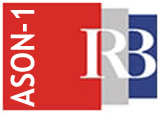Among the many dignitaries who will attend the school, Croatia's premier Ms. Jadranka Kosor has been invited to open the event. Other attendees of note include the Minister of Economy and Business, Mr. Đuro Popijać, the Minister of Science, Education and Sports, Dr. Radovan Fuchs, the president of the Croatian Chamber of Commerce, Mr. Nadan Vidosšević, Croatia's ambassador to Finland, Dr. Damir Kušen, as well as Finland's ambassador to Croatia, Mr. Juha Ottman.
The summer school will give young scientists from Croatia and abroad the opportunity to enrich their education in the field of nanoscience, which is the basis for the development of nanotechnologies. In the absence of such activities, it is difficult to imagine the advent of modern medicines, new materials, environmental protection, novel sensors, modern tumor therapies and a host of other innovative products and technological solutions. Nanotechnology represents one of the strategic initiatives for economic development in many leading countries. In the context of Croatia's embarkation in an analogous direction, the summer school represents a strategic initiative of the Ruđer Bošković Institute to lay the foundation for the future development of nanotechnological advances, for the benefit of the Croatian economy.
Prior to the official opening of the summer school itself, a round-table discussion on The potential of nanoscience and nanotechnology in a country's economic growth and development. Dr. Danica Ramljak, director-general of the RBI will moderate the discussion and the panel will include leading scientists and business leaders from countries that are beginning to develop strategies aimed at fostering nanotechnologies, such as Croatia, Slovenia and Serbia, as well as representatives from leading nations in the field, such as Finland and Switzerland. The discussion will focus on the potential of Croatia and other countries in the region to successfully utilize the development of nanotechnology-based industry for positive economic effects.
Dr. Paul Seidler, the Director of Science and Technology at the IBM Research Laboratory in Zurich and special guest at the summer school will give a keynote lecture at 19:00 on the opening night of the summer school. He will discuss the importance of nanoscience and nanotechnology in the development of modern economies and knowledge-based societies.
Among the distinguished speakers participating in the school will be several scientists from the RBI and the Institute for Physics in Zagreb, representing Croatia, as well as numerous experts from leading European institutions. Although the summer school began as a Croatian-Finnish initiative, participants are expected from Austria, Slovenia, Croatia, Serbia, Bosnia and Herzegovina, Finland, Poland, Germany, Hungary, Italy and Switzerland. As such, the summer school can be expected to raise the international profile of RBI and Croatia, which is particularly important in the context of plans to prioritize the development of advanced technology, on a national level.


